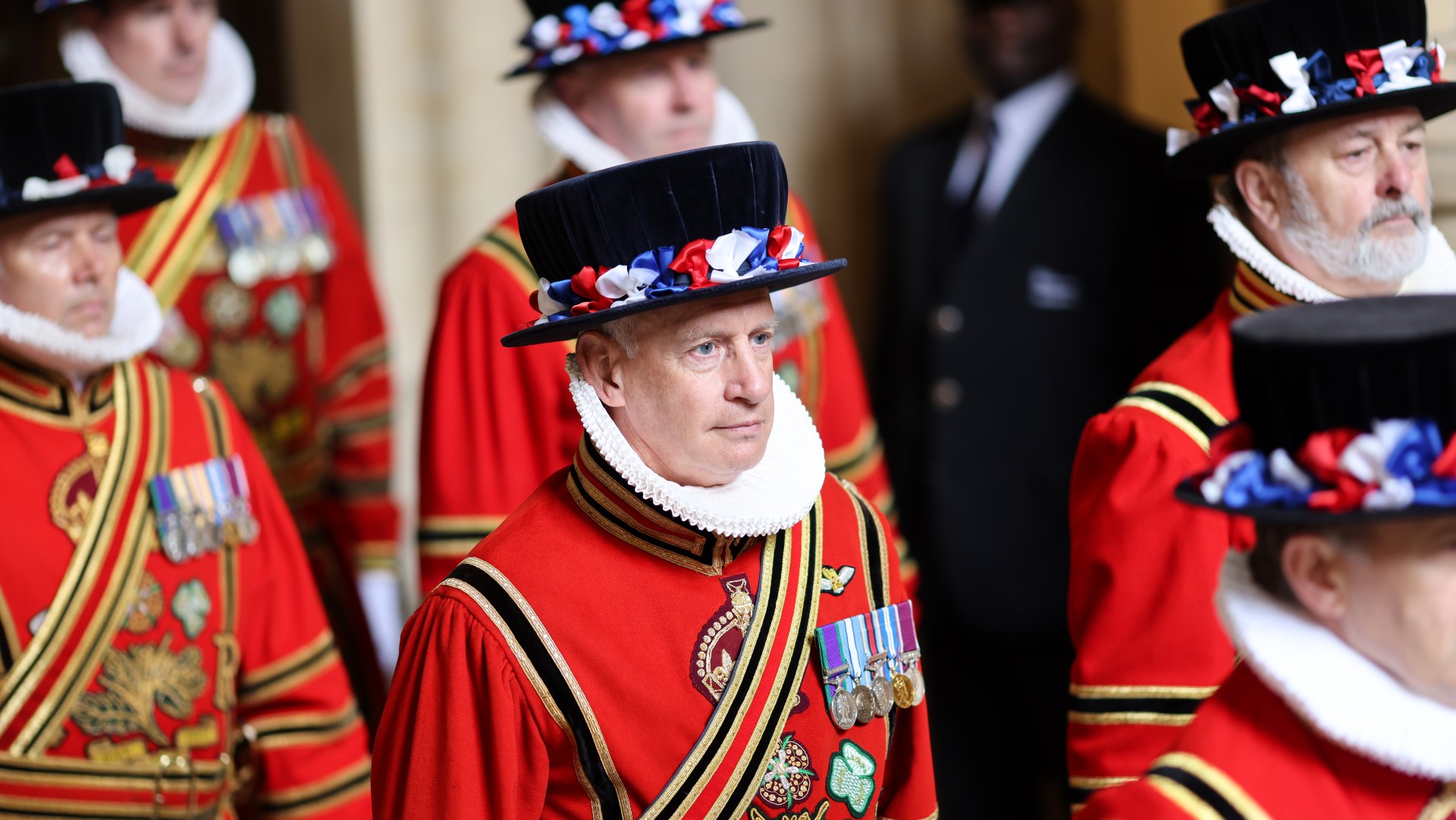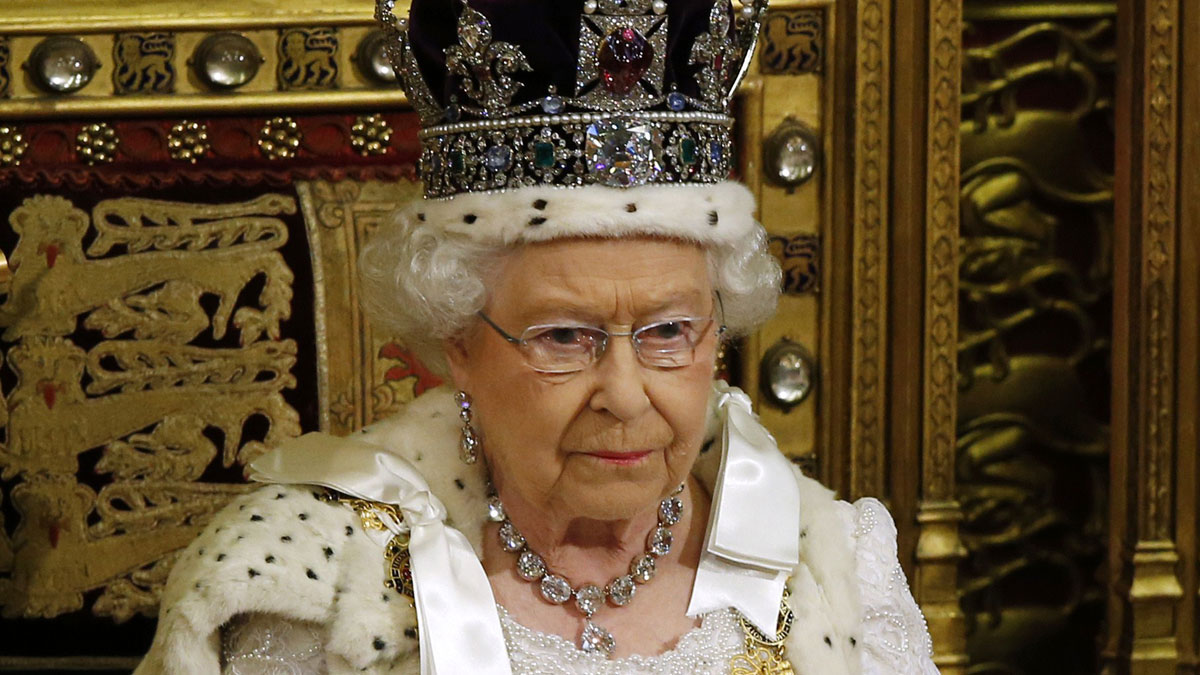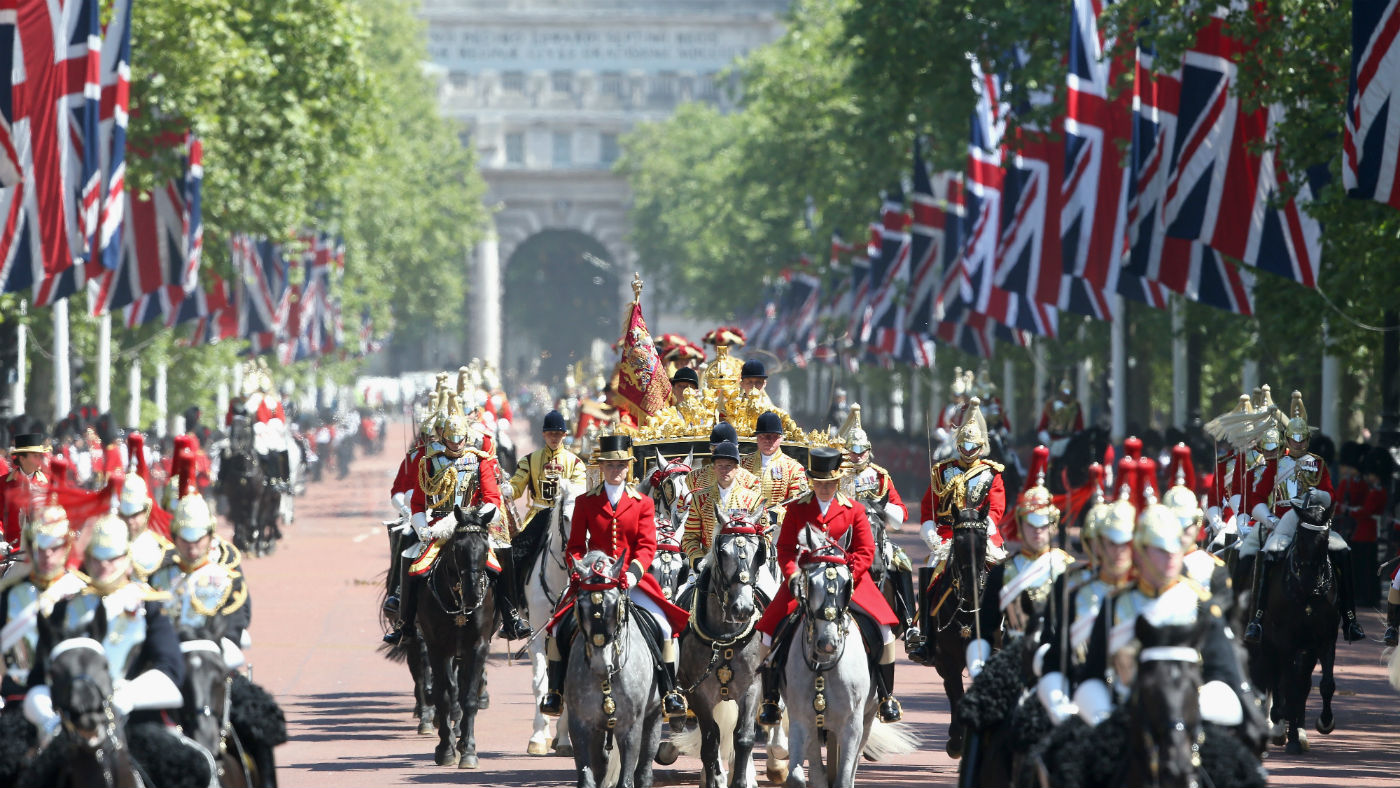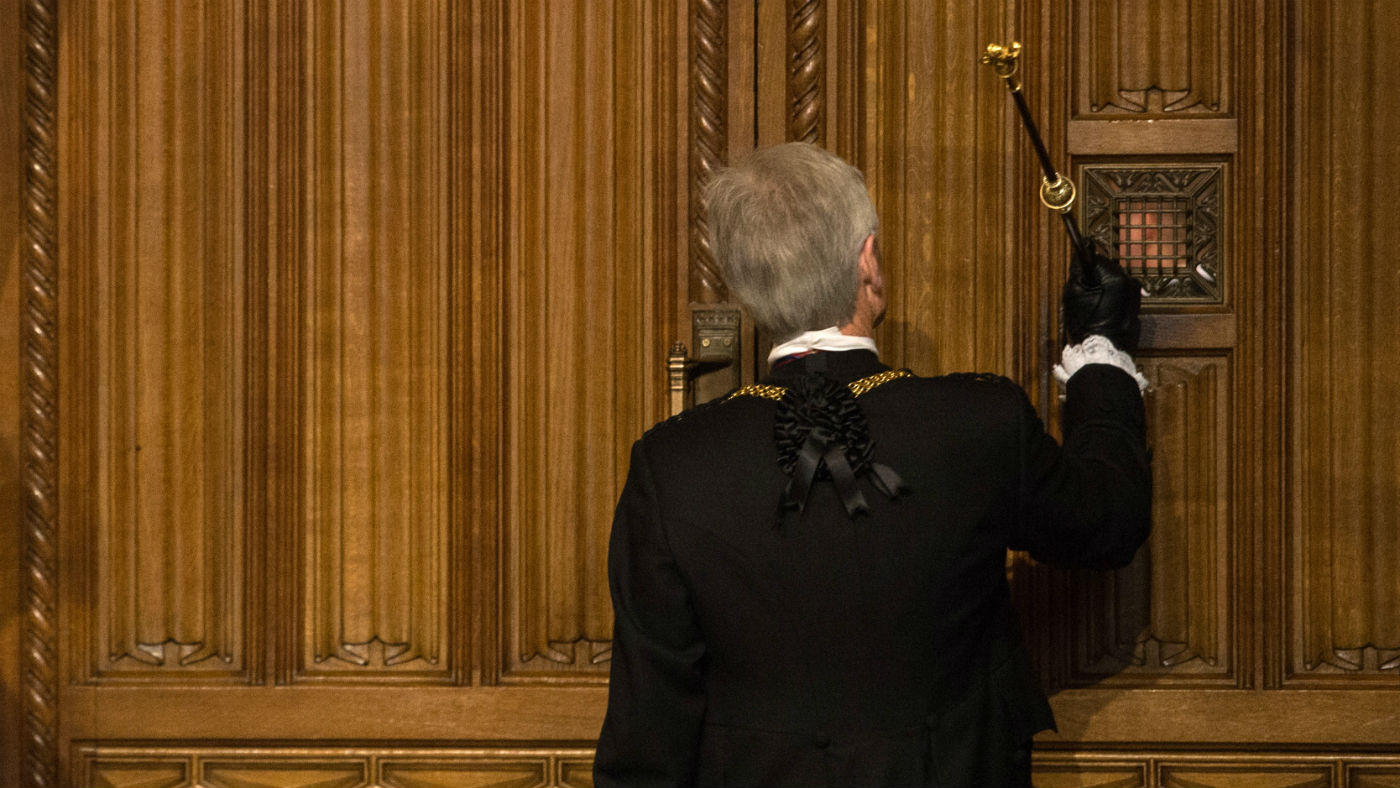Black Rod, the crown and a hostage: the strangest traditions of the Queen’s Speech
Rituals surrounding State Opening of Parliament are among the most unusual UK customs

A free daily email with the biggest news stories of the day – and the best features from TheWeek.com
You are now subscribed
Your newsletter sign-up was successful
For the first time since 1963, Queen Elizabeth will not read the Queen’s Speech today.
Instead, Prince Charles will deliver the address, and open Parliament with the help of his son, Prince William, as the monarch is experiencing “episodic mobility problems”.
It is “only the third time in her reign” that she has failed to read out the government's plans for upcoming legislation, said Sky News. She missed the occasion in 1959 and 1963 when she was pregnant.
The Week
Escape your echo chamber. Get the facts behind the news, plus analysis from multiple perspectives.

Sign up for The Week's Free Newsletters
From our morning news briefing to a weekly Good News Newsletter, get the best of The Week delivered directly to your inbox.
From our morning news briefing to a weekly Good News Newsletter, get the best of The Week delivered directly to your inbox.
Nevertheless, the State Opening of Parliament will still be surrounded by pomp and ceremony - and the very unusual traditions that often leave onlookers bemused.
Centuries-old traditions
Traditions surrounding the State Opening and the delivery of a speech by the monarch can be traced back as far as the 16th century. “It is the only regular occasion when the three constituent parts of Parliament – the Sovereign, the House of Lords and the House of Commons – meet,” said the parliament.uk site.
The usually elaborate ceremony revolves around the Queen’s Speech, which is written by the government and lays out the policies and laws it wants to pass.

The customs surrounding the state opening stem from the ancient tug-of-war between monarchy and parliament, symbolising the balancing act that has evolved between the two.
A free daily email with the biggest news stories of the day – and the best features from TheWeek.com
“As far as over-the-top spectacles go, the state opening of Parliament is up there,” said The Washington Post.
Explosives and a hostage
First, the Queen’s Yeomen of the Guard ceremonially check the Palace of Westminster’s cellars for any explosives, in commemoration of Guy Fawkes’s 1605 gunpowder plot against James VI and I.
Meanwhile, in a custom stemming from the execution of Charles I at the end of the civil war, an MP is held “hostage” in Buckingham Palace in case the monarch comes to any harm.
“Although they aren’t actually locked up, they definitely aren’t allowed to leave,” because if anything happens to the monarch, the same will happen to the MP, according to Buzzfeed.
Labour MP Jim Fitzpatrick, who was the hostage in 2014, dressed in a top hat, tails and striped trousers, once told the BBC: “When I expressed my anxiety to the head of the Armed Forces, he said, ‘If anything happened to Her Majesty, Jim, we would have made it quick. We would have just shot you.’ And I don’t think he was kidding.”

Once it has been proven that there is no threat to the monarch, the king or queen usually proceeds from Buckingham Palace in a coach drawn by four horses while a 41-gun artillery salute is fired from both the Tower of London and Hyde Park. The Imperial State Crown and regalia travel in front in a carriage of their own.
Although the Queen will not attend today, the crown will still travel to Parliament.
Once inside
Inside Westminster, the monarch usually dons robes and the Imperial State Crown before taking their place on the throne in the Lords’ Chamber.
According to Sky News, “the Queen's throne will remain empty in the House of Lords” today, and Prince Charles and his wife Camilla will sit in their usual seats.
“The Prince of Wales will wear his Admiral of the Fleet uniform and Prince William will be in morning coat,” added the broadcaster.
Black Rod
Next in the spotlight is Black Rod, the usher who takes their name from the ebony staff they carries which bears the Anglo-Norman phrase “Honi soit qui mal y pense” - “Shame be to him who evil thinks”.
They are dispatched by the monarch to summon the MPs - who famously slam the door of Parliament on them to symbolise the Commons’ independence from the head of state. Only when Black Rod knocks three times do the MPs open the door and then, two by two, process behind them “in a boisterous way”, which is again to signal their independence - another tradition dating back to Charles I, who in 1642, tried to arrest five MPs.

After that, peers and MPs listen to the speech and the government. The king or queen normally leaves to the sound of military trumpets and the Union Flag is put back in position - the Royal Standard flies during the actual ceremony.
Finally, the MPs settle down and bicker over the speech itself. And so parliament begins.